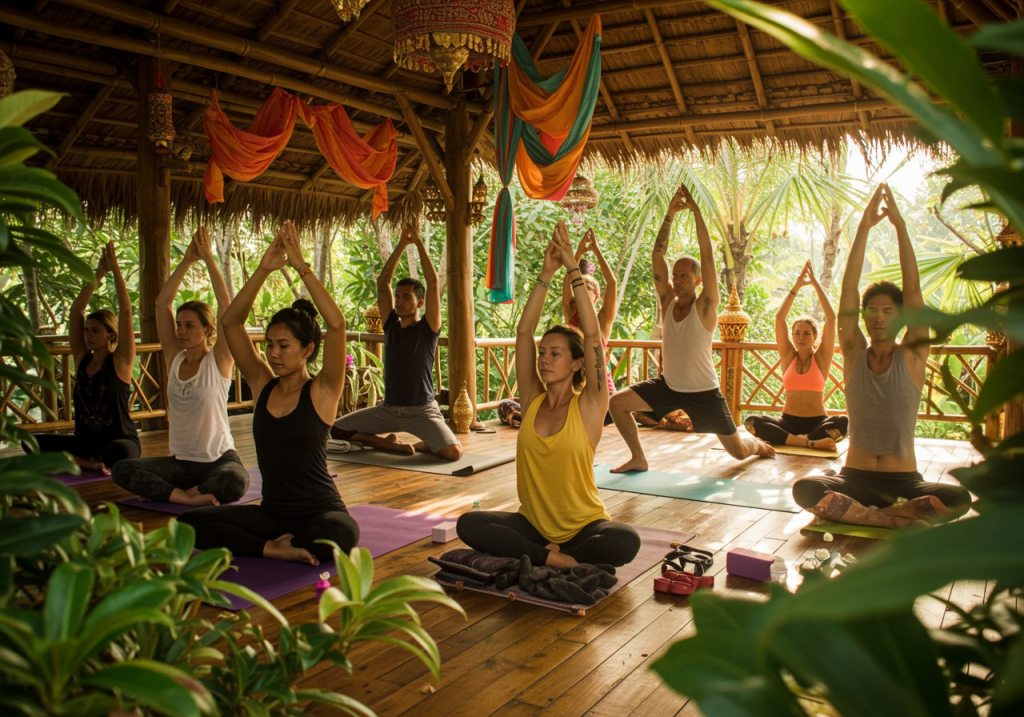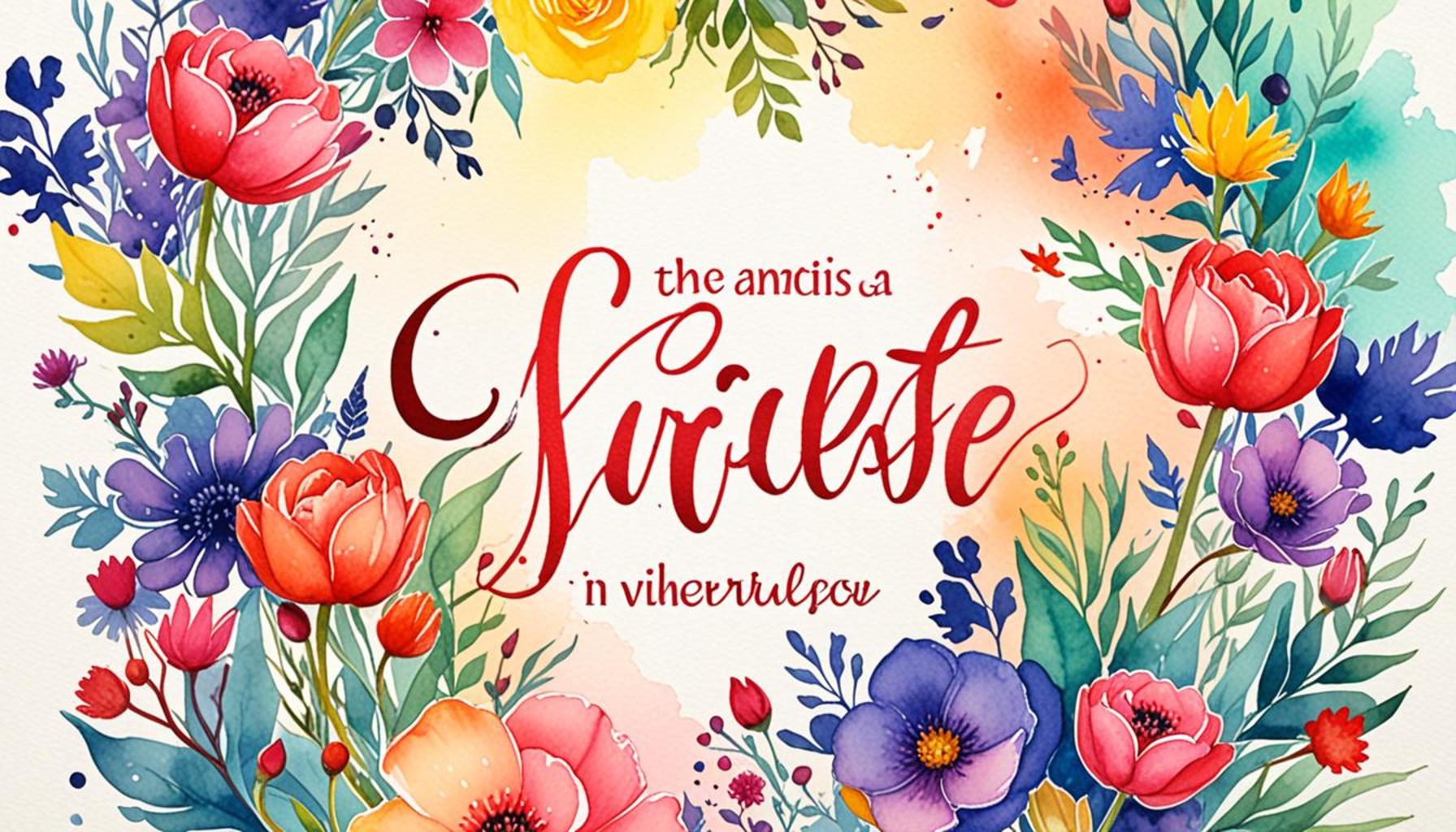Mindfulness Practices to Incorporate into Your Relaxation Retreat Itinerary

Discover Mindfulness for a Tranquil Retreat
In a society saturated with constant notifications, busy schedules, and relentless commitments, carving out time for peace has become more crucial than ever. Relaxation retreats present a perfect opportunity to step back from this chaos and immerse oneself in the practice of mindfulness, which can greatly enhance your experience during these tranquil getaways. Adopting specific mindfulness practices can elevate a simple vacation into an enlightening journey, allowing for inner growth and new perspectives.
Consider enriching your retreat with the following mindfulness practices:
- Meditation: Dedicating time each day to meditation, whether through guided sessions or self-directed silence, can significantly calm the mind. Many retreats offer meditation classes focused on various styles, like loving-kindness or transcendental meditation, encouraging participants to explore what resonates most with them.
- Yoga: Gentle yoga sessions foster a profound connection between the body and mind. Whether it’s Hatha, Vinyasa, or restorative yoga, these practices help participants stretch and breathe deeply, cultivating physical health while nudging mental clarity forward. Retreats often feature classes nestled in serene outdoor settings, enhancing the rejuvenation process.
- Nature Walks: Mindful walks through natural landscapes enable participants to engage all their senses. Imagine a stroll through a forest, punctuated by the chirping of cicadas and the rustling of leaves underfoot. Practicing mindfulness during these walks—focus on your breathing, the smell of damp earth, or the feel of cool air—can ground you in the moment, reminding you of the beauty surrounding you.
- Journaling: Take time to reflect on your thoughts and feelings through journaling. Writing can be an invaluable tool to deepen self-awareness and process emotions. Many retreats provide prompts or structured time for journaling, guiding you to explore insights gained from meditation or nature experiences.
These practices extend beyond mere relaxation; they foster mental clarity and emotional equilibrium. For many, the integration of mindfulness during a retreat culminates in a refreshing experience that forges stronger connections with oneself and the surrounding environment. Numerous studies have shown that engaging in mindfulness exercises can lead to reduced anxiety and a more profound understanding of one’s emotional landscape.
As you draft your retreat itinerary, consider how each mindful activity can reinforce your journey toward relaxation and introspection. By committing to these enriching practices, you will likely unlock the full potential of your relaxation retreat, allowing for transformative experiences that last well beyond your time away.
DISCOVER MORE: Click here to uncover family-friendly adventures

Embrace the Power of Mindfulness
As you embark on your relaxation retreat, incorporating mindfulness practices not only enhances your experience but can also provide lasting benefits long after you’ve returned to your daily routine. Mindfulness promotes self-awareness and emotional balance, driving participants to reconnect with their true selves amidst the chaos of modern life. Here are some essential mindfulness practices to consider as you shape your retreat itinerary:
- Breathwork: One of the simplest yet most effective mindfulness practices is breathwork. Taking a few moments to focus solely on your breathing can create a profound sense of calm. Many retreats offer breathwork sessions that guide participants through various techniques such as diaphragmatic breathing or box breathing. By intentionally controlling the breath, you can reduce anxiety levels and promote relaxation, allowing you to enjoy each moment fully.
- Sound Healing: Integrating sound therapy into your retreat is another innovative way to foster mindfulness. Instruments like Tibetan singing bowls, gongs, or even the soothing sounds of nature can help attendees achieve a meditative state. Sound healing sessions guide participants to immerse themselves in frequencies, nourishing mental clarity and emotional serenity.
- Mindful Eating: Rather than simply consuming meals out of habit, mindfulness can be applied to the way we eat. Engage in mindful eating practices by savoring each bite, appreciating the flavors, and tuning in to the body’s hunger signals. Many retreats strive to create meal experiences that emphasize local, organic ingredients, encouraging participants to connect with their food on a deeper level.
- Artistic Expression: Allow your creativity to flow through mindful artistic practices. Painting, drawing, or crafting can be excellent outlets for self-expression and stress relief. Participating in guided art sessions can help you engage with your emotions and unlock hidden insights while creating something uniquely personal.
Integrating these practices into your relaxation retreat itinerary not only allows for a deeper engagement with the experience but also fosters a sense of community among participants. When shared among like-minded individuals, mindful moments can deepen connections, reinforcing the retreat’s intention of self-discovery and personal growth.
Moreover, studies have shown that investing time in these mindfulness techniques can lead to improved mental health outcomes, enhancing overall well-being. Each mindful practice you incorporate serves as a stepping stone toward a more meaningful and rejuvenating retreat experience.
Incorporating mindfulness into your relaxation retreat is not just about tranquility; it’s a path to a more fulfilling and vibrant life. As you refine your itinerary, consider which of these practices resonates with you the most and how they can enhance your journey toward relaxation and self-exploration.
Essential Mindfulness Practices for Your Relaxation Retreat
Incorporating mindfulness practices into your relaxation retreat itinerary is essential for creating an atmosphere of serenity and self-discovery. By focusing on techniques that foster awareness and presence, you enhance not only your experience but also the benefits you glean from the retreat. Below are key mindfulness practices that can elevate your journey.
| Mindfulness Practice | Benefits |
|---|---|
| Meditation | Enhances focus, reduces stress, and fosters emotional clarity. |
| Breathwork | Helps to ground yourself, regulate emotions, and calm the mind. |
Engaging in guided meditations or connecting with nature through walking meditations can further deepen your experience. Additionally, incorporating yoga and gentle movement can help you maintain body awareness while promoting relaxation. Each practice serves to not only unlock the true potential of your relaxation retreat but to provide tools you can carry forward into daily life.
Furthermore, consider including time for journaling to reflect on your thoughts and experiences. This simple practice encourages clarity and self-discovery, allowing for a more profound connection to oneself. The combination of these mindfulness practices will facilitate a transformative retreat, paving the way for lasting benefits to your overall well-being.
DISCOVER MORE: Click here for a refreshing getaway
Deepen Your Mindfulness Journey
As you curate your relaxation retreat, expanding your array of mindfulness practices can significantly enrich the experience. Mindfulness is a holistic approach, and incorporating various activities can aid in cultivating a deeper sense of awareness and connection, not only to oneself but also to the surrounding environment. Below are additional practices that can seamlessly blend into your itinerary:
- Guided Meditation: Engaging in guided meditation is an excellent way to introduce mindfulness into your retreat. Many retreats offer sessions led by experienced instructors who can tailor the meditation to fit the group’s needs. These meditations can vary from short five-minute sessions to longer, immersive journeys. This practice helps participants focus the mind, clarify intentions, and promote emotional healing, facilitating a peaceful transition into a state of mindfulness.
- Nature Immersion: Taking time to connect with nature is one of the most rejuvenating mindfulness practices available during a retreat. Organizing hikes or quiet nature walks encourages participants to engage their senses fully. This can be enhanced further by incorporating “forest bathing,” or Shinrin-yoku, a Japanese practice that emphasizes being mindful in a natural setting. Studies have indicated that spending time in nature can reduce stress hormones and enhance mood, making it an essential component of any relaxation itinerary.
- Journaling: Providing time for reflective journaling can be transformative. Encourage participants to document their thoughts and feelings during the retreat. Prompts can be provided, such as reflections on personal experiences or insights gained through mindfulness practices. Not only does journaling aid in processing experiences, but it also enhances self-awareness and emotional clarity, creating a deeper understanding of personal growth throughout the retreat.
- Yoga and Movement: Integrating yoga and mindful movement into your retreat itinerary can beautifully complement other mindfulness practices. Whether it’s gentle yoga, chair yoga for those with mobility issues, or even Tai Chi, these forms of movement emphasize presence in the moment while connecting breath and body. Practicing these techniques helps participants tune into their physical sensations, developing a heightened awareness of both physical and mental states.
- Mindful Technology Use: In our hyper-connected world, it can be challenging to unplug fully. Incorporating mindful technology use can empower participants to disconnect from distractions and connect with themselves. Encourage the use of apps that support meditation and mindfulness, but set clear boundaries to restrict smartphone use during certain activities, fostering a space for focused reflections and interpersonal connections.
Incorporating these diverse mindfulness practices not only diversifies your retreat experience but also addresses different learning styles and preferences among participants. Some may find solace in guided meditation, while others may thrive in movement and nature immersion. This inclusive approach fosters an enriching environment that promotes self-discovery, openness, and personal growth.
As you consider these practices, remember that the essence of mindfulness lies in the steady evolution of both the mind and body. Tailoring your retreat to incorporate a variety of mindfulness activities can invite participants to engage more deeply, transforming the retreat into a sanctuary of healing and insight.
DISCOVER MORE: Click here to dive into amazing water adventures
Embrace the Power of Mindfulness
In conclusion, incorporating mindfulness practices into your relaxation retreat itinerary can transform an ordinary escape into a profound journey of self-discovery and growth. The amalgamation of diverse activities—from guided meditation and nature immersion to reflective journaling, dynamic yoga, and conscious technology use—creates a harmonious balance that resonates with participants on various levels. By doing so, you not only cater to different preferences but also enhance the accessibility and effectiveness of the experience.
A successful retreat is more than just a physical getaway; it is an invitation to cultivate deeper connections with oneself and the world. The inclusion of mindfulness allows participants to step back from their daily routines, encouraging a shift in perspective that can lead to long-lasting benefits. As research continues to highlight the mental, emotional, and physical advantages derived from mindfulness practices, it becomes more evident that these activities are essential, not optional.
As you design your retreat, remember that every individual’s path to mindfulness is unique. Customize your offerings to embrace this diversity, fostering an environment that encourages participation and personal exploration. Ultimately, your goal should be to create a sanctuary that nurtures healing, promotes well-being, and guides participants toward a more balanced lifestyle. By embracing the power of mindfulness, you lay the foundation for memorable experiences that resonate long after the retreat ends, inspiring lasting positive change in the lives of all who attend.


